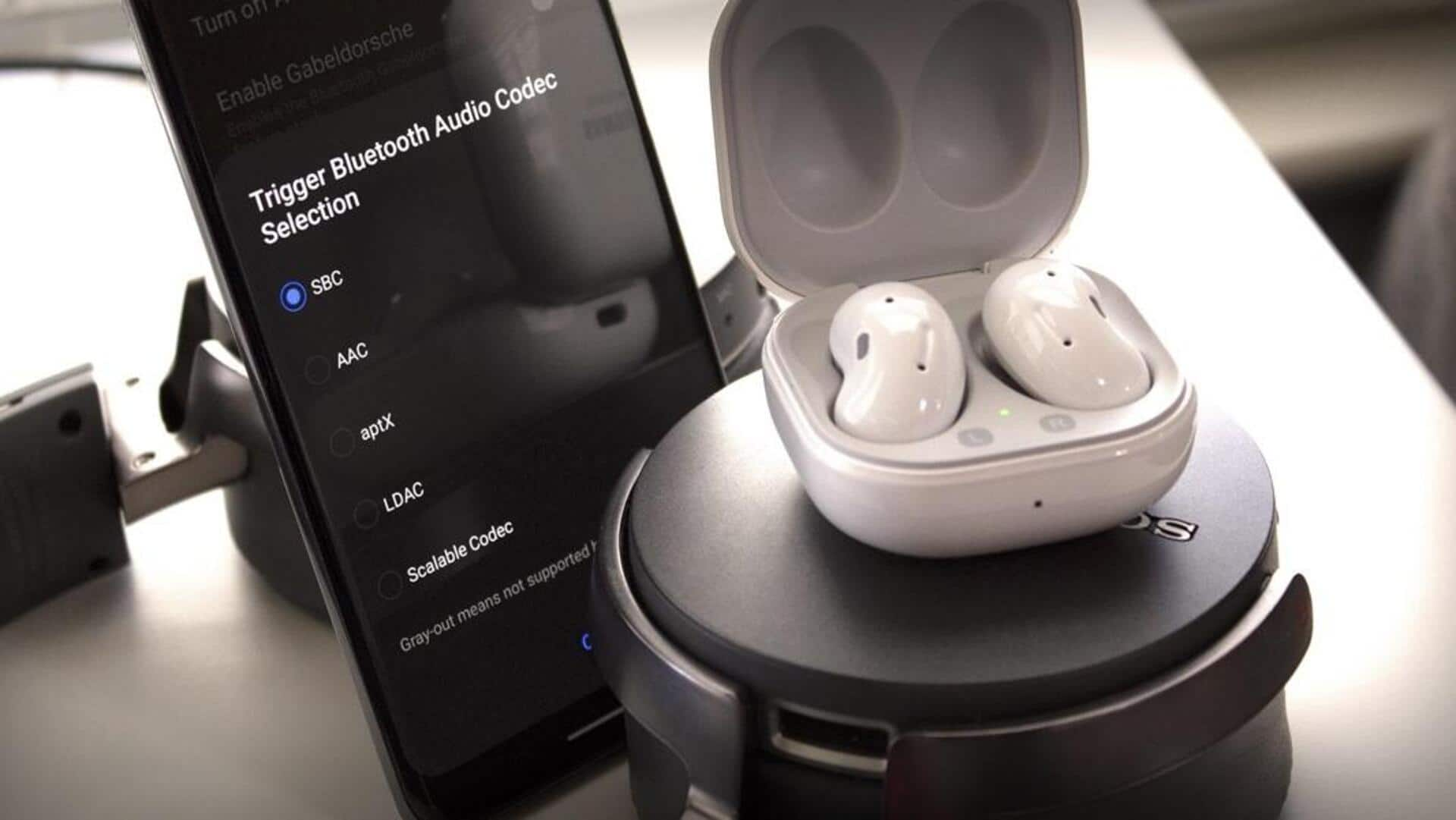
How to reduce Bluetooth lag on your headphones, gaming controllers
What's the story
Bluetooth devices such as headphones and controllers are often marred by latency issues, where the input fails to sync with the output on the connected device. This can lead to a delay between a speaker's lips moving in a film and the dialog coming through your Bluetooth speakers. Likewise, hitting a button on a controller may take longer than expected to register as an input in Android games designed for controllers. Here are some effective ways to reduce Bluetooth lag.
Connection reset
Resetting Bluetooth connections can fix lag
A useful trick to minimize Bluetooth lag is resetting your Bluetooth connections. This is more than just disconnecting the devices; you have to unpair and then re-pair your device. Open the Settings app, tap "Connected devices," and click on the Settings button (cog icon) next to the device experiencing lag. Now, tap Forget, and pair your device again.
Battery check
Low battery levels can cause Bluetooth lag
A common cause of Bluetooth lag is low battery levels on your device. However, not all devices show their battery level, making it difficult to know the charge status. To check the battery level of a Bluetooth device without a read indicator, connect it to your phone and follow these steps: After pairing the device with your phone, open the Settings app, tap "Connected devices," and check the battery level.
Signal interference
Signal interference can cause issues
Bluetooth lag can also be attributed to signal interference. As Bluetooth signals are short-ranged and weak, long distances and intervening objects can result in lag. To avoid this, move your Bluetooth device closer to the connected device and see if there's any object blocking the Bluetooth antenna. Even if it doesn't appear like anything is in the way, something could be blocking the antenna's location.
Power saving
Battery saver mode might impact connectivity
Battery-saving modes are meant to prolong the battery life of devices by limiting performance and disabling non-essential features. However, they can also affect connectivity and cause Bluetooth audio lag. To avoid this, you can disable Battery Saver mode on Android devices: Opne the Settings app, tap Battery, and clicking on the Battery Saver option. Now, disable the Use Battery Saver switch.
Audio quality
High-quality audio can lead to lag
As high-quality audio demands more bandwidth, it can lead to Bluetooth lag. Most apps have a setting for HD audio (for instance, Spotify has four streaming quality settings). If you're facing Bluetooth lag from a particular app, see if you can change/reduce the quality of that app first. On Android, you can disable the HD Audio setting by enabling Developer options and then disabling the HD Audio switch.
Codec change
Switching to a Bluetooth codec with lower latency
A Bluetooth codec decodes and encodes audio as it travels from the source to your headphones/speaker. There are various codecs that offer different audio experiences. If you face Bluetooth lag, switch to a codec with lower latency. The common codec on Android phones is Subband coding (SBC). SBC is a good compromise between quality and latency. However, activate aptX Low Latency (aptX LL) to eliminate audio lag. This codec isn't available on many phones, including Google Pixel phones.
Headphone upgrade
Low-latency Bluetooth headphones can eliminate audio lag
If you only experience Bluetooth lag with one pair of headphones, you may have to switch to low-latency headphones. Many top-tier Bluetooth headsets come with low-latency features that eliminate audio lag. However, this option reduces the sound quality and decreases the headphone's battery life.